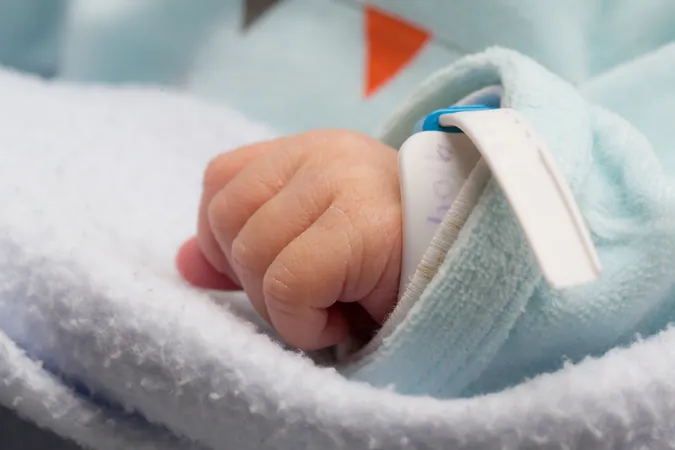
Shocking Study Reveals Cancer’s Hidden Impact on Fatherhood: Preterm Birth and Low Birth Weight Risks!
2025-01-17
Author: Ming
Context: A Neglected Area of Research
While much attention has been given to the fertility challenges faced by young women diagnosed with cancer, the specific effects on male fertility and child health have been largely overlooked. Dr. Caitlin Murphy, an Associate Professor of Health Promotion and Behavioral Sciences at UTHealth Houston School of Public Health, highlighted a significant gap in research. She stated, “There has been very little research on childbirth and perinatal outcomes for adolescent and young adult men with cancer. I often hear from these individuals that fertility is their top concern when facing a cancer diagnosis. Providing them with data-driven information is vital.”
How the Study Worked: A Deep Dive into Data
Researchers meticulously analyzed data from the Texas Cancer Registry and incorporated live birth certificates and the Texas Birth Defects Registry. The study focused on a cohort of 42,896 young men, aged 15 to 39, who had been diagnosed with cancer between January 1, 1995, and December 31, 2015. To determine the impact of cancer on childbirth, these men were compared to a matched group of peers without a cancer diagnosis.
The results were eye-opening. The study found preterm birth rates among children born to cancer-affected fathers were reported at 8.9%, compared to 8% for those with unaffected fathers. Similarly, instances of low birth weight were 6% for cancer-afflicted fathers versus 5.3% for their healthier counterparts. Notably, the researchers did not find a significant increase in birth defects, suggesting that while there are risks, not every aspect of child health is adversely affected.
Evaluating outcomes based on cancer type, the findings revealed that men diagnosed with thyroid cancer had the highest rate of live births (27.6%), while those facing gastrointestinal cancer had the lowest (9.6%) a decade after their diagnoses.
Why This Matters: Counseling as a Priority
The implications of these findings are profound, signifying a critical need for enhanced reproductive counseling for young men facing cancer. Dr. Murphy emphasized the importance of providing this counseling as part of a comprehensive care plan rather than viewing it solely as a pre-treatment consideration.
“Patients are often overwhelmed upon receiving their diagnosis, and then they are confronted with making immediate fertility decisions. This pressure can be intense and confusing,” she explained. Dr. Murphy advocates for a broader approach to reproductive health discussions that extends beyond the diagnosis day to support informed decision-making during treatment and recovery.
Looking Ahead: Further Research Required
As researchers plan future studies, including an evaluation of pregnancy complications among young women with cancer, it is clear that the conversation about cancer's impact on family health must expand. The importance of understanding how such diagnoses influence reproductive health can significantly shape supportive care frameworks for both men and women grappling with similar challenges.
In summary, this study not only sheds light on critical issues surrounding young male cancer patients but also underscores the pressing need for education, counseling, and comprehensive reproductive health support—potentially transforming the landscape of fatherhood in the face of cancer.
 Brasil (PT)
Brasil (PT)
 Canada (EN)
Canada (EN)
 Chile (ES)
Chile (ES)
 Česko (CS)
Česko (CS)
 대한민국 (KO)
대한민국 (KO)
 España (ES)
España (ES)
 France (FR)
France (FR)
 Hong Kong (EN)
Hong Kong (EN)
 Italia (IT)
Italia (IT)
 日本 (JA)
日本 (JA)
 Magyarország (HU)
Magyarország (HU)
 Norge (NO)
Norge (NO)
 Polska (PL)
Polska (PL)
 Schweiz (DE)
Schweiz (DE)
 Singapore (EN)
Singapore (EN)
 Sverige (SV)
Sverige (SV)
 Suomi (FI)
Suomi (FI)
 Türkiye (TR)
Türkiye (TR)
 الإمارات العربية المتحدة (AR)
الإمارات العربية المتحدة (AR)